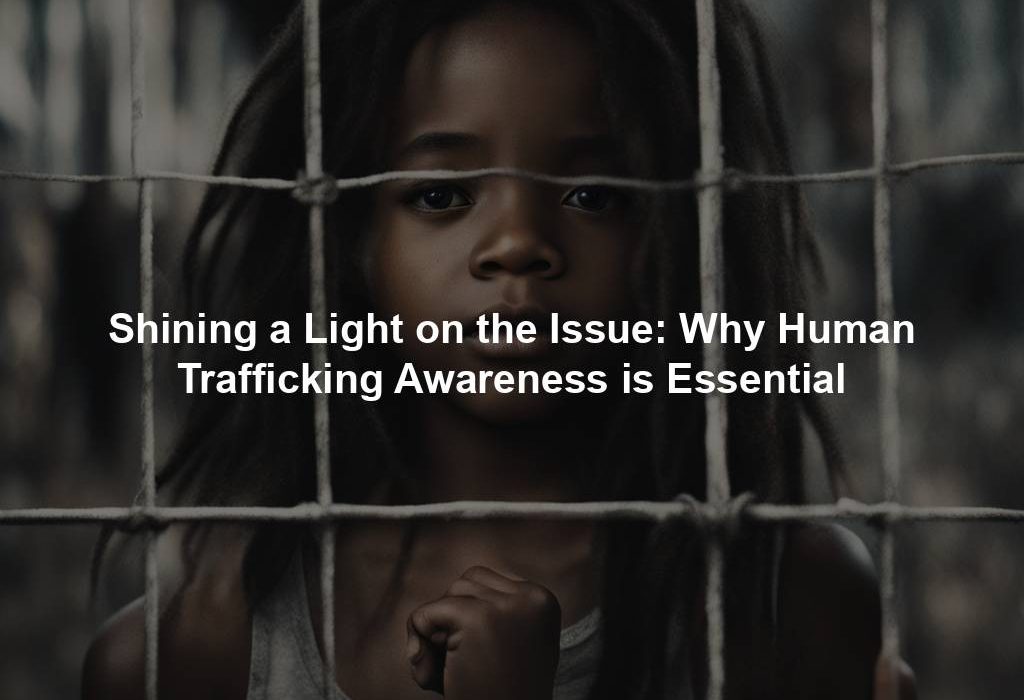Human trafficking, often referred to as modern-day slavery, is a serious global issue affecting millions of individuals worldwide. It involves the exploitation of people for forced labor, sexual purposes, or other forms of servitude. Despite significant efforts to combat human trafficking, it remains a widespread problem that requires heightened awareness to address effectively.
**The Global Impact of Human Trafficking**
Human trafficking is a pervasive problem that knows no boundaries, with an estimated 40.3 million victims globally, as reported by the International Labour Organization (ILO). Shockingly, women and girls make up 71% of those impacted by this crime. Victims are exploited through forced labor, forced marriages, and sexual exploitation, among other means.
The challenge lies in accurately documenting the extent of human trafficking, as many cases go unreported or are misclassified. This makes it hard to gauge the true scale of the problem. Nevertheless, it is evident that urgent action from governments, law enforcement agencies, and civil society groups is crucial to combat this issue effectively.
**Factors Driving Human Trafficking**
Various factors contribute to the prevalence of human trafficking, including poverty, lack of education, and limited economic opportunities. Societal instability, conflict, and political unrest also create conditions that make individuals vulnerable to exploitation by traffickers.
Gender inequality is a major driver of human trafficking, with women and girls disproportionately affected. Many are coerced into the commercial sex industry or domestic servitude. The demand for cheap labor and sexual services perpetuates this cycle of abuse and exploitation.
**The Role of Awareness in Combating Human Trafficking**
Raising awareness about human trafficking is pivotal in the fight against this crime. By educating the public about the signs and indicators of trafficking, individuals can be more vigilant and proactive in identifying potential cases of exploitation in their communities. This heightened awareness aids in victim identification, providing support, and holding perpetrators accountable for their actions.
Educational campaigns, training programs, and community outreach play a vital role in raising awareness about human trafficking. These initiatives aim to educate the public about the risks and realities of trafficking, empower individuals to prevent exploitation, and offer support to victims in their recovery process. By involving communities, schools, and businesses, awareness-raising efforts aim to create a more informed and vigilant society equipped to tackle human trafficking.
**Preventing Human Trafficking Through Collaboration and Advocacy**
Preventing human trafficking necessitates a collaborative effort involving governments, law enforcement agencies, civil society organizations, and the private sector. By addressing the root causes of trafficking, enhancing legal frameworks, and supporting victims, stakeholders can adopt a comprehensive approach in combating this crime.
Advocacy is a key component of anti-trafficking efforts. By pushing for legislative reforms, policy changes, and increased funding for anti-trafficking programs, advocates can ensure this issue remains a global priority. Through grassroots activism, public campaigns, and advocacy work, advocates can raise awareness, promote victim rights, and hold entities accountable for their actions.
**In Summary**
Human trafficking is a widespread and intricate issue that demands sustained attention and united action to address. By shedding light on this problem, raising awareness, and understanding the realities of trafficking, individuals and communities can play a pivotal role in preventing exploitation and supporting victims. Through collaboration, advocacy, and a steadfast commitment to human rights, progress can be made towards a world free from human trafficking.
**Sources:**
– International Labour Organization. Global Estimates of Modern Slavery.
– United Nations Office on Drugs and Crime. Global Report on Trafficking in Persons.
– U.S. Department of State. Trafficking in Persons Report.
– Polaris. National Human Trafficking Hotline Data.
– Freedom United. Human Trafficking Overview and Statistics.




